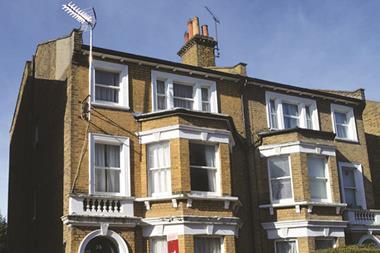It’s clear that property is still a hot topic with politicians, landlords and house buyers.

Rarely has a sector of the economy come under the microscope of the chancellor to this extent and in 2015 property policy played an important role in both the election and the chancellor’s Autumn Statement. Whether it’s the housing crisis and the promise to build more affordable housing or reviewing how landlords are taxed, George Osborne’s policies have created a lot of debate and raised the profile of property like never before.
As far as property auctions are concerned, 2015 saw, yet again, a solid growth performance, and in many cases outperformed other methods of private and commercial property asset disposal.
EI Group monitors all UK property that goes under the hammer at auction and produces statistics on the number and value of sales, with trends over time. Last year saw some significant improvements in the popularity of people buying at auction:
- Lots offered and lots sold were up 17% and 24% respectively;
- The total raised at auction grew significantly to £271.9m - up 63% on November 2014;
- The total sale value from December 2014 to November 2015 was up, at £4.3bn; and
- Commercial property sales were up 48.3% year on year.
These statistics clearly indicate the important role the property auction sector makes to the overall sales of UK property and provides for sellers a route to sell quickly at the best possible price.
The traditional method of sale is in an auction room and bids are placed at that auction, but bidders unable to attend can also provide proxy bids in advance or place bids on the phone for a particular lot. However, a growing trend will be for online auctions where buyers can place bids from the comfort of their own home at any time during the auction period within which property or land is for sale.
Upward trend
The forecast for property in 2016 still looks strong. A number of factors will influence the steady growth of property, whether private or buy-to-lets for rent. The improved economy, favourable employment figures and low interest rates will ensure property growth will continue its upward trend, even though the rate of that growth may be affected by a number of factors, particularly in relation to buy-to-lets. However, we will still need plenty of private rental properties as the million new houses the government has promised will take at least another five years to come to fruition.

The outlook for investment yields, therefore, is still very good in the medium term. Property auctions are an ideal place to acquire property at a favourable price that can be controlled and returns can be managed. A popular way of keeping the initial cost down is to buy property that requires some renovation or refurbishment. Then works can start to either improve it for sale or rental or change its use from, say, retail to residential with an eye on future returns.
However, Osborne has turned his focus on the buy-to-let market and is trying to cool it down in favour of people buying a home rather than renting a house. The key changes announced are increased stamp duty for second homes and buy-to-lets, along with reduced tax benefits for landlords to offset against their properties. There are ways round this as some of the tax changes do not apply to limited companies - so landlords, particularly those with multiple properties - can set up a company to be the owner of their portfolio. And the stamp-duty changes do not apply to commercial property, so again there are ways to still have a successful and profitable business in owning and renting property. With the housing crisis continuing until enough new, affordable houses are built, there will be a need for a well-managed, competitively priced and good-quality private rental sector.
Private buyers
There are several other opportunities that the auction sector has capitalised on in recent years to help its growth. One of these is the rise of private buyers; that is to say, those who are buying a house or flat to live in themselves.
More and more people, particularly those with capital, are seeing the opportunity to buy, even at open market value, or below, but having the property in their ownership much more quickly than using traditional estate agencies.
We are also seeing the buying of property in syndicates as a growing trend, among those without large amounts of cash to hand. Syndicates work by a number of people putting a set amount of money into an investment property in order to reap the rewards of rental income, growth and ultimate sale. They allow, therefore, the costs and risk to be shared without acting alone. They may also open up the opportunity to be part of a group buying a wider variety of property such as offices, commercial property and industrial units, which individuals may not have the full knowledge and experience to do on their own. And it’s not just individuals they are popular with: pension funds, financial institutions and property companies are increasingly using syndicates to grow their portfolios to suit their longer-term investment plans.
The rise of the cash buyer is clearly a significant development in the property market. We are also seeing this happening in London with overseas investors, who are snapping up not only individual properties but whole developments with large capital investments. This is one of the reasons for the property bubble we see in the capital, and a number of industry commentators are concerned by how this will shape the future in terms of driving prices further upwards and lowering access to available property to other investors.
Phillip Arnold, managing director, Phillip Arnold Auctions, and president of NAVA

About Phillip Arnold Auctions
Phillip Arnold Auctions is an established property auction house based in Ealing, London, offering a professional yet friendly auction service for the disposal of private and corporate residential and commercial properties.





























No comments yet